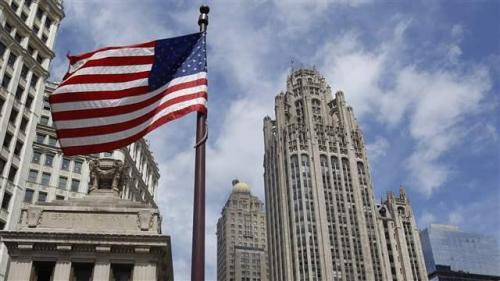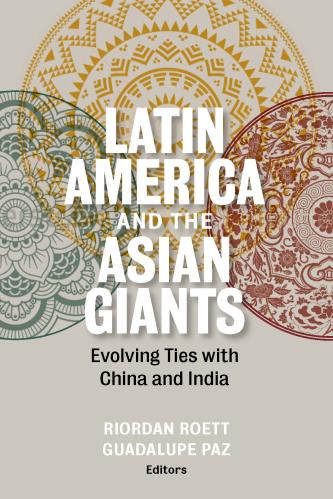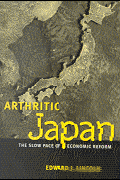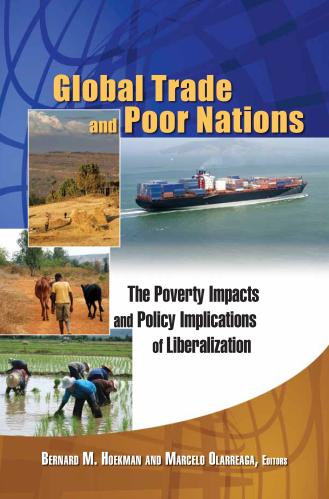Each week this summer a Brookings expert will post a blog related to one of the ten traits of globally fluent metro areas. These traits have proven to be particularly strong determinants of a metro area’s ability to succeed in global markets, manage the negative consequences of globalization, and better secure its desired economic future. This blog represents trait 9 – Government as Global Enabler.
Over the past few years, the Metropolitan Policy Program at Brookings has collaborated with a wide variety of U.S. metro areas to develop localized export plans and explore the importance of increased global engagement. One of the questions frequently raised by local participants revolves around the role mayors and their associated local economic development offices can and should play in global trade and investment.
Some assume this is an area private sector firms can best manage on their own. Others grasp the basic role the federal government should play in global trade, but don’t understand how a mayor could bring value to international business.
The findings of our recent work confirm that governments around the world play a vital role in the global engagement and fluency of their metro areas and firms. So much so that “Government as Global Enabler” was designated as Trait 9 in our recently released report, “10 Traits of Globally Fluent Metropolitan Areas”. Further, this work has revealed that mayors have critical roles to play in driving their metro areas and firms to “go global”.
At the big picture level, national (and state) governments set the tone and potential for global business engagement by establishing a certain level of transparency, security, dependability, and predictability. These governments play certain roles related to international competitiveness that the private sector cannot play, such as establishing the tax climate, implementing regulations, crafting immigration policies, investing necessary resources in infrastructure, and (at the federal level) signing free trade agreements. National governments (with their overseas embassies and offices) are also uniquely positioned to provide their businesses with ongoing advocacy and support in foreign markets.
The purpose of the administration’s National Export Initiative is to build momentum around global trade that will lead to more firms making the shift to engage and take advantage of opportunities in global markets. We are increasingly convinced that this will only happen through more bottom-up (localized) export initiatives designed to proactively reach out to targeted clusters of firms in each metro area and work with these firms where they are. And this is where mayors come in.
On the ground at home, Minneapolis Mayor R.T. Rybak represents a growing group of mayors that have assumed a leadership role in driving their metro areas to be more intentional related to global opportunities. He is articulating a vision of a more globally oriented, competitive, and fluent metro area. His commitment to participate directly on the steering committee to develop that region’s recently launched export plan gave legitimacy to the effort. He used his convening power to engage the major players from the region around exports, including the mayors of St. Paul and Edina and key state, federal, and business association officials. Local economic developers are now proactively identifying and reaching out to high potential targets, resulting in a bigger pipeline of export ready firms. Mayor Rybak is one of an increasing number of big city mayors that collectively advocate for increased federal government support for local and national trade initiatives.
Moving out into the world, successful global business is about cultivating relationships. While it may be relatively easy for a large multinational firm to resource and pursue business overseas, it is a daunting prospect for SMEs. Elected officials, including mayors and their associated economic development agencies, possess a unique capacity to open doors for business delegations in overseas markets that they are not able to open themselves.
This is because elected leaders are recognized as the primary representatives of their jurisdictions in markets throughout the world. Well-orchestrated mission trips to foreign markets grab media attention, create buzz, and secure meetings with public and private sector leaders that support the building of relationships and ultimately result in business transactions and jobs.
For example, as part of its role in implementing Portland, OR’s new regional export plan, the Portland Development Commission, the city of Portland’s economic development agency, recently took their “We Build Green Cities” brand strategy on the road to Japan. The Portland-based firms that joined them were met by standing room only crowds and pre-arranged one-on-one meetings with a steady stream of potential partners and clients. The participating firms agreed that this type of interaction with potential foreign partners around this unique Portland cluster was groundbreaking and was not something they could have orchestrated on their own.
Government’s role in trade and investment promotion is ultimately about competitiveness. In a rapidly changing and increasingly interconnected world economy, regions must pull together around a common global agenda. While regional chambers and business groups often champion and implement new initiatives, it is frequently strong local mayors that prove to be the catalysts that set a new course for their regions at critical points in time. They possess a unique capacity to convene local leadership networks around a new or reinvigorated global agenda that can best ensure a sustained international effort and a competitive regional economy.
The Brookings Institution is committed to quality, independence, and impact.
We are supported by a diverse array of funders. In line with our values and policies, each Brookings publication represents the sole views of its author(s).











Commentary
The 10 Traits of Globally Fluent Metro Areas: Mayors as Catalysts of Global Trade and Investment
August 23, 2013